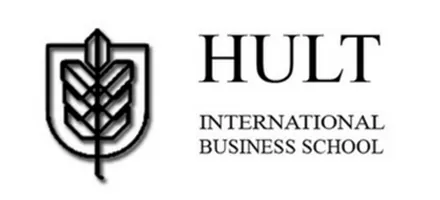
Which undergraduate business program was named the best by U.S. News once again this year? You guessed it: Wharton
The more things change …
If you thought that a year of coronavirus would be enough to shake loose the iron grip of the elite schools atop U.S. News’ ranking of undergraduate business programs in the United States — well, hopefully you didn’t wager too much on your hunch. The new ranking was released today (September 13), and as it has for more than a decade, the Wharton School at the University of Pennsylvania claimed the top spot.
Nor was there any meaningful shakeup in most of the rest of the top 10 on U.S. News’ list. As the table below shows, with the exception of the University of Michigan Ross School of Business, which dropped one spot out of a tie for third place, the top seven schools remain ranked the same as last year: MIT Sloan School of Management second, UC-Berkeley Haas School of Business third, and two schools tied at fifth, NYU Stern School of Business and Texas-Austin McCombs School of Business, just as they were last year. Carnegie Mellon Tepper School of Business comes in at seventh for a consecutive year. Of the 11 schools in the top 10 (which was made possible by ties), the biggest movement occurred for Indiana University’s Kelley School of Business, which moved up three spots to a four-place tie for eighth from 11th last year.
Further down in the ranking of 514 schools, named the 2022 Best Undergraduate Business Programs though it was released with more than three months remaining in 2021, the volatility increases exponentially, with many schools lumped together and large blocs dropping or rising by identical amounts. The University of Oklahoma Price College of Business suffered the biggest drop-off in the top 100, falling 21 places from 53rd last year to 74th; Florida State University plummeted 20 spots to 64th. The biggest jump occurred for Howard University, which went from 116th last year to 84th, a 32-place gain.
WHAT A NO. 1-RANKED PROGRAM LOOKS LIKE
It has been frequently pointed out (by us and others) that U.S. News’ undergraduate B-school ranking is little more than a popularity contest. After all, unlike Poets&Quants‘ annual undergraduate business ranking, this list does not take into account the quality of a school’s enrolled student base, the academic and extracurricular experience of the students, the quality of the faculty, or the career outcomes of a school’s graduates. Nor does U.S. News report on the actual acceptance rates for the business programs nor the success of their career management offices in placing students. Instead, the ranking relies entirely on the opinions of the deans and senior professors who fill out a survey — many of whom have little knowledge of the rival programs on which they’re voting, forcing them to rely on U.S. News‘ previous lists. Wharton won the popularity contest again this year by, once again, earning a 4.8 peer score on a five-point scale; MIT Sloan was second with 4.7, Berkeley Haas earned a 4.6, and Michigan earned a 4.5.
What does a 4.8 program look like? Wharton excels in two key areas: admission standards and employment outcomes, while being no slouch in academic experience, too.
Wharton, which also topped P&Q’s 2021 ranking thus year (for the fourth year in a row), annually enrolls around 400 undergraduates; last year, the school boasted a stingy acceptance rate of 7.6%, lowest in the P&Q ranking, making the school’s undergraduate program harder to get into than Harvard Business School’s MBA. The 2020 incoming class boasts an average SAT score of 1,504 out of a possible 1,600, putting the class in the top 2% of the world’s test-takers. An impressive 90% of the graduating Class of 2018, moreover, acknowledged that they finished in the top-10% of their high school class, according to our survey of the school’s latest graduates.
While Wharton’s admissions standards are certainly rigorous, the career outcomes reported by the school continued to be incredibly strong in 2020 despite the coronavirus pandemic: Some 98% of the Class of 2020 had business-specific internships before graduation, and 97.9% of graduates seeking employment that year secured full-time positions within three months of graduation — a slight uptick from 97.7% reported by the year-earlier Class of 2019.
ABOUT THAT METHODOLOGY …
The methodology of U.S. News‘ list — deans and faculty rate the quality of rival programs on a scale from 1 (marginal) to 5 (distinguished) — doesn’t allow for much nuance. At the bottom of this year’s ranking, for example, the magazine has 52 different undergraduate programs tied with the same rank: 462 to 514. Some 47 schools are tied with a rank of 414; another 50 are lumped together at 363.
U.S. News formerly used the two most recent years’ responses to calculate weighted average scores of programs in undergraduate business — for example, a program that received 55% of its total ratings in 2020 and the remaining 45% in 2019 would have 55% of its overall score determined by its 2020 survey results and 45% by its 2019 survey results. This year, for the first time, the overall ranking was based only on survey results from one year: 2021 — and it was a down year for responses, with only 49.5% of those surveyed responding to the magazine’s survey. In 2020, U.S. News says, 51.7% of those surveyed responded; the year before, the overall response rate was 56.2%. This lower response rate alone could account for changes in rank at some schools.
Lacking credibility even more are U.S. News‘ specialty rankings, of which there are now 13, from Accounting to Supply Chain Management to Business Analytics and more. But while a school need only receive seven nominations in the top 15 to be included in these sub-categories, making inclusion deceptively meaningful, the B-schools that claim each top spot can reliably be said to truly excel in that field. Wharton, for example, is first this year in Finance, as well as in Management and Real Estate, and second in Marketing. The University of Texas at Austin is first in Accounting; Babson is tops in Entrepreneurship; etc. See a list of the top five winners of the U.S. News specialization rankings on page 3.
See the rest of the top 105 colleges and universities in the newly released U.S. News ranking of best undergraduate business programs on the next pages.
© Copyright 2026 Poets & Quants. All rights reserved. This article may not be republished, rewritten or otherwise distributed without written permission. To reprint or license this article or any content from Poets & Quants, please submit your request HERE.










